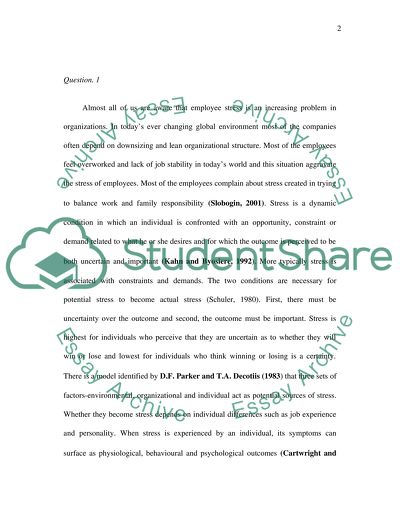Cite this document
(“Stress Management in Organization Essay Example | Topics and Well Written Essays - 3000 words”, n.d.)
Stress Management in Organization Essay Example | Topics and Well Written Essays - 3000 words. Retrieved from https://studentshare.org/psychology/1510479-stress-management-in-organization
Stress Management in Organization Essay Example | Topics and Well Written Essays - 3000 words. Retrieved from https://studentshare.org/psychology/1510479-stress-management-in-organization
(Stress Management in Organization Essay Example | Topics and Well Written Essays - 3000 Words)
Stress Management in Organization Essay Example | Topics and Well Written Essays - 3000 Words. https://studentshare.org/psychology/1510479-stress-management-in-organization.
Stress Management in Organization Essay Example | Topics and Well Written Essays - 3000 Words. https://studentshare.org/psychology/1510479-stress-management-in-organization.
“Stress Management in Organization Essay Example | Topics and Well Written Essays - 3000 Words”, n.d. https://studentshare.org/psychology/1510479-stress-management-in-organization.


